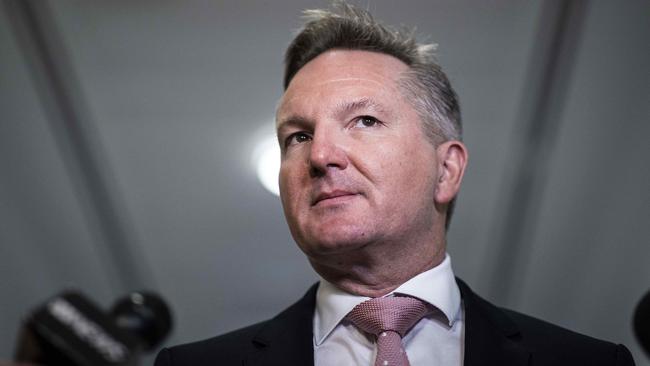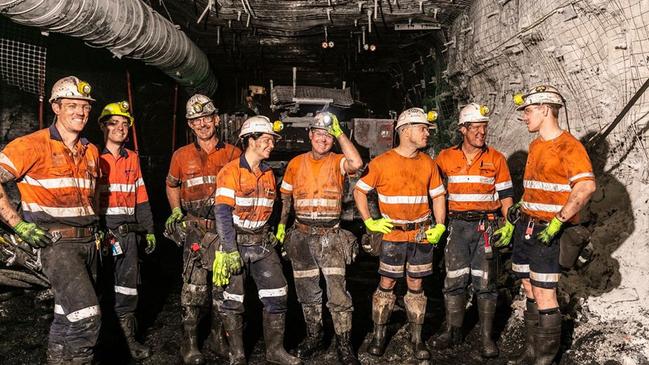Anglo American has concerns about Labor’s climate safeguard mechanism
Anglo American is concerned about changes to the safeguard mechanism because big emitters face extra costs to comply with the government’s climate change policy.
Mining giant Anglo American has raised concerns over extra costs imposed by Labor’s tougher safeguard mechanism regime while PwC flagged caution about soaring carbon prices as big polluters clamour to access offset markets.
The operators of 215 large industrial facilities which contribute 28 per cent of Australia’s emissions were in August given one month to respond to Climate Change Minister Chris Bowen’s overhaul of the mechanism, which anchors Labor’s 2030 pledge to cut emissions by 43 per cent.
Anglo American, a major Queensland coal producer, said it had been pleased over the approach taken by the government so far but said it was cautious whether a tougher regime would recognise emissions reduction already under way.
“We’re going to have to do some modelling and we’re going to have to understand the impacts, including for the abatement that we’re already planning, and ensuring that’s not crowded out by additional costs at a time we need to attract capital for emissions reduction projects,” Anglo American’s head of corporate relations, Victoria Somlyay, told a conference in Canberra.

A senior government official conceded there were a number of “gnarly issues” to work through but said the mining industry needed to pull its weight.
“We are having a look at what are the competitive impacts likely to be and do we need to have particular arrangements in place, if there are individuals or facilities that have got a particularly acute trade exposure or particularly acute position,” said Jo Evans, deputy secretary with the Department of Climate Change, Energy, Environment and Water.
“So we’re not blind to those issues and we definitely want to work through them with you, but I think we need to make sure we don’t put that off as a sort of blocker to making progress overall.”
Current definitions suggest nearly 80 per cent of covered emissions and more than half, or 118, of all safeguard facilities could be classified as emissions intensive and trade-exposed industries – with broad exemptions potentially undermining climate-change goals.

The reworked safeguard mechanism is expected to drive more demand for carbon offsets, particularly for companies in harder-to-abate industries with more limited near-term options to cut their emissions levels.
The ability to tap into international offsets would require legislative changes and did not feature in the initial enhanced mechanism, although Labor has said there could be limited access to overseas markets as part of its consultation over the scheme.
Under Labor’s climate plan, the safeguard mechanism would deliver a 213 million tonne cut to greenhouse gas emissions by 2030.

Ms Evans queried the assumption ACCU prices would surge and pointed to the use of the market outside any new mechanism.
“There’s quite a vibrant market out there and, as the new options come through, I think the prices can stay down. But nonetheless within the safeguard mechanism – because it will be quite a significant source of demand – we will be looking at what sort of flexibility do you need there,” Ms Evans said.
“We have put up some discussion on international offsets, but it’s not something we’re intending to move with, at least in the first instance.
“But we’re allowing the conversation to happen about what would it look like in case you want to introduce that down the track. So that would be a release valve.”






To join the conversation, please log in. Don't have an account? Register
Join the conversation, you are commenting as Logout